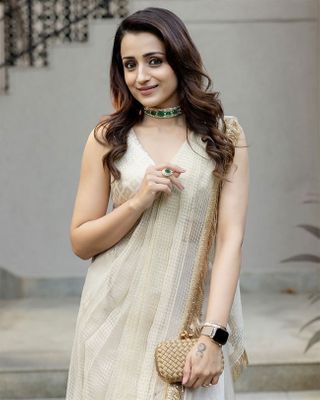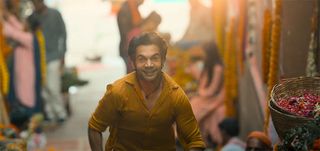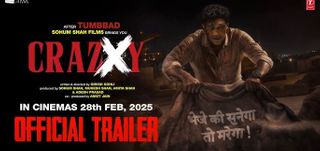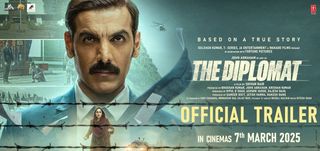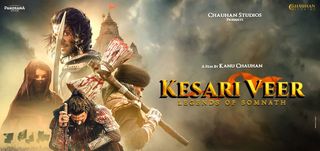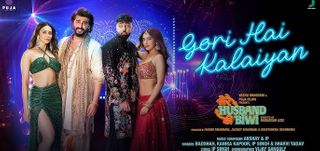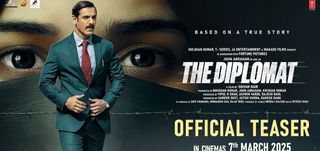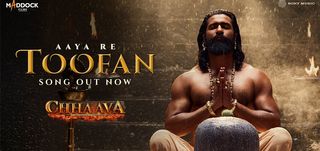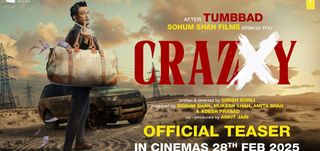
Bombay Talkies Movie Review
In how many movies have you found yourself sitting right through even the end credit rolls? What's best, you may not like the Doordarshan-ish promotional video having an ensemble of Hindi cinema's superstars towards the end but it's the sheer reverence for cinema that'll make you enjoy it anyway! That's our four filmmakers', Karan Johar, Zoya Akhtar, Dibakar Bannerjee and Anurag Kashyap's way of celebrating the centenary of Indian cinema as their quarter Bombay Talkies makes it to the cinema halls today.
1 - The film opens with Karan Johar's segment showcasing a perfect world, a good looking couple Gayatri (Rani Mukerji) and Dev (Randeep Hooda) comfortably settled in their married life. Gayatri is the managing editor of an entertain tabloid where she comes across a young intern at her office Avinash (Saqib Saleem) who soon befriends her and gets privy to her intimate details of her married life that's now turned mundane and passionless. The ebullient homosexual Avinash in one meeting with Dev starts deciphering the reasons for the developing cracks in their marriage.
Although the tabooed topic of homosexuality and coming out of the closet is increasingly finding its place in Hindi film stories, it's pleasantly surprising to see Johar breaking the stereotypical mould of the family sagas and keeping his film as realistic as possible. He weaves the story with the lilting song selections of Ajeeb dastan hai yeh and Lag jaa gale running along with the narrative at the background. The film's predictability gets covered up by the impressive acting by Randeep, Rani and Saqib and the brilliant dialogue writing.
2 - The next one and what would be the cinematically the best in terms of cinematography, editing and narrating is Dibakar Bannerjee's film. Adapting a Satyajit Ray story (Potol Babu), Bannerjee reveals a troubled past of Purandhar (Nawazuddin Siddiqui) and his mentor (Sadashiv Amrapurkar) which affects his present too. Hailing from a seedy chawl in Mumbai, Purandhar, chances upon a scene along with Ranbir Kapoor in a big Bollywood film as an extra. How within a few minutes of rehearsals, the filmmaker introduces a dream sequence with a dramatic confrontation between Purandhar and his mentor is what follows through the rest of the plot.
Dibakar taps the acting prowess of Nawazuddin Siddiqui who is at the top of his form and presents a poignant yet endearing film that tugs at your heart straight away. Even a brief cameo of Sadashiv Amrapukar is extremely impactful and stays with you right till the end. Cinematographer Nikos Andritsakis' camera adds gems to this brilliant story with each and every frame standing out. A special mention to the wide framing of the open space surrounded by urban skyscrapers which has the miniscule Nawaz rehearsing his bit role in the film and also the dramatic sequence of Nawaz and Amrapukar with the pet emu lurking quirkily at the backdrop.
3 - Zoya Akhtar's story, arguably the weakest of the lot, traces the story of a 12 year old kid Vicky (Naman Jain) who's smitten by the latka-jhatkas of Bollywood and completely swooned by Sheila - Katrina Kaif. He literally worships the actress and wants to be a dancer just like her. But his dreams always get severely rebuked by his stern father (Ranvir Shorey) who wants his son to behave like a boy and indulges him in playing football and cricket.
Although the child actor plays his part splendidly but the inner turmoil and conflict doesn't get dealt properly by Akhtar. The message too that the film wants to convey appears blurry.
4 - The last and the second most delightful of the lot is Anurag Kashyap's tale of Murabba (Pickle). It can be called Kashyap's homage to the blind star worship that happens in the Bollywood crazed Nation with the star of course being - Amitabh Bachchan. Vijay (Vineet Kumar Singh) from Allahabad takes on a journey to Mumbai to fulfill his aging father's (Sudhir Pandey) last wish of sharing a murabba with his favourite star Amitabh Bachchan. What he considers to be a 2minute job turns into an unending mayhem.
Anurag's story stands strongly not so much on the story as on the witty street slangs and the myriad emotions it portrays. The portions of Mr. Bachchan's cameo and the subsequent turn of events really get you glued to the screens.
Bombay Talkies is not so much homage to 100 years completion of Indian cinema than the celebration of the varied genres of cinema. It celebrates the cinema frenzied fans of the nation in a befitting manner. With each story better than the other, Bombay Talkies is a sure shot watch.








